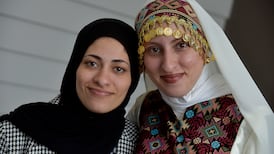The health of former Russian prime minister Dr Yegor Gaidar continues to improve in a Russian hospital, although there is intense speculation in Moscow that he may have been poisoned. He became violently ill during a visit to Ireland last week.
It is understood that doctors have ruled out any form of radioactive poisoning, which killed the Russian dissident Alexander Litvinenko in London last week. They may also decline to issue a formal statement on Dr Gaidar's condition at all, since they cannot reach any conclusive diagnosis.
"The only news is that Dr Gaidar is getting better," Mikhail Slobodinskii, an aide to Dr Gaidar at the Institute for Economy in Transition in Moscow, said last night
Gardaí in Dublin have begun their own investigation into Dr Gaidar's sudden illness, under the control of Det Chief Supt P Kelly, special detective unit. Inquiries to date have been conducted with hospital and medical staff and through the diplomatic corps, according to a statement last night.
"Public health and safety is of paramount importance and there is nothing known which indicates that any member of the public is at risk," the statement said.
Opposition TDs have called for radiation and other tests to be carried out to allay public fears in the light of the Dr Gaidar's mystery sickness. Labour TD Dr Mary Upton asked the Government to confirm whether tests for abnormal radiation or toxins had been carried out.
"Under normal circumstances if someone falls ill after eating breakfast in Kildare you would never need to test for the presence of abnormal radiation," said Dr Upton, a specialist in food microbiology and former chair of the Radiological Protection Institute of Ireland (RPII).
"However, I understand from press reports that Alexander Litvinenko, who apparently died of poisoning from polonium-210 last week in London, met very recently with one of Mr Gaidar's bodyguards."
Dr Gaidar fell ill at a conference in Maynooth at 5.15pm last Friday. He was taken to James Connolly Memorial Hospital in Blanchardstown, Dublin. Dr Gaidar returned home at the weekend and was admitted to hospital in Moscow on Sunday.
A spokesman for the Russian embassy in Dublin said he had no further comment and that it was a matter for the doctors in Moscow and Dr Gaidar. The Department of Foreign Affairs also declined to comment.
The Department of Health referred queries last night to the Health Service Executive (HSE). Both the RPII and the HSE last night issued statements indicating they were monitoring the situation and were in regular contact with authorities here and in Britain. They indicated, however, that they had no official information to give grounds for concern.
In a brief phone conversation with The Irish Timesyesterday, Dr Gaidar declined to give an interview, though he was able to speak in lucid English. He told the Irish Ambassador to Russia, Justin Harman, that he hopes to leave hospital in a few days.









